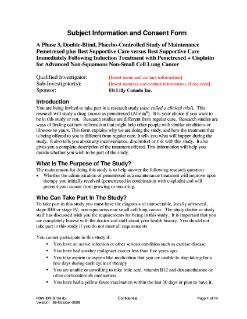Related Research Articles
Conversion therapy is the pseudoscientific practice of trying to change an individual's sexual orientation from homosexual or bisexual to heterosexual using psychological, physical, or spiritual interventions. There is no reliable evidence that sexual orientation can be changed and medical institutions warn that conversion therapy practices are ineffective and potentially harmful. Medical, scientific, and government organizations in the United States and United Kingdom have expressed concern over the validity, efficacy and ethics of conversion therapy. Various jurisdictions around the world have passed laws against conversion therapy.

Informed consent is a process for getting permission before conducting a healthcare intervention on a person, for conducting some form of research on a person, or for disclosing a person's information. A health care provider may ask a patient to consent to receive therapy before providing it, a clinical researcher may ask a research participant before enrolling that person into a clinical trial, and a researcher may ask a research participant before starting some form of controlled experiment. Informed consent is collected according to guidelines from the fields of medical ethics and research ethics.

Medical ethics is an applied branch of ethics which analyzes the practice of clinical medicine and related scientific research. Medical ethics is based on a set of values that professionals can refer to in the case of any confusion or conflict. These values include the respect for autonomy, non-maleficence, beneficence, and justice. Such tenets may allow doctors, care providers, and families to create a treatment plan and work towards the same common goal. It is important to note that these four values are not ranked in order of importance or relevance and that they all encompass values pertaining to medical ethics. However, a conflict may arise leading to the need for hierarchy in an ethical system, such that some moral elements overrule others with the purpose of applying the best moral judgement to a difficult medical situation.
Confidentiality involves a set of rules or a promise usually executed through confidentiality agreements that limits access or places restrictions on certain types of information.

Professional ethics encompass the personal and corporate standards of behavior expected by professionals.

The terms medical record, health record, and medical chart are used somewhat interchangeably to describe the systematic documentation of a single patient's medical history and care across time within one particular health care provider's jurisdiction. A medical record includes a variety of types of "notes" entered over time by healthcare professionals, recording observations and administration of drugs and therapies, orders for the administration of drugs and therapies, test results, x-rays, reports, etc. The maintenance of complete and accurate medical records is a requirement of health care providers and is generally enforced as a licensing or certification prerequisite.
Male circumcision is the surgical removal of the foreskin (prepuce) from the human penis. The ethics of non-therapeutic circumcision being imposed on unconsenting minors has been a source of ongoing controversy.
Journalistic ethics and standards comprise principles of ethics and good practice applicable to journalists. This subset of media ethics is known as journalism's professional "code of ethics" and the "canons of journalism". The basic codes and canons commonly appear in statements by professional journalism associations and individual print, broadcast, and online news organizations.
A duty to rescue is a concept in tort law that arises in a number of cases, describing a circumstance in which a party can be held liable for failing to come to the rescue of another party who could face potential injury or death without being rescued. In common law systems, it is rarely formalized in statutes which would bring the penalty of law down upon those who fail to rescue. This does not necessarily obviate a moral duty to rescue: though law is binding and carries government-authorized sanctions and awarded civil penalties, there are also separate ethical arguments for a duty to rescue even where law does not punish failure to rescue.
Nursing ethics is a branch of applied ethics that concerns itself with activities in the field of nursing. Nursing ethics shares many principles with medical ethics, such as beneficence, non-maleficence and respect for autonomy. It can be distinguished by its emphasis on relationships, human dignity and collaborative care.
Medical advice is the provision of a formal professional opinion regarding what a specific individual should or should not do to restore or preserve health. Typically, medical advice involves giving a diagnosis and/or prescribing a treatment for medical condition.
A medical college or medical association is a trade association that brings together practitioners of a particular geographical area. In common-law countries, they are often grouped by medical specialties.
Health information management (HIM) is information management applied to health and health care. It is the practice of acquiring the work and a new team for their, analyzing and protecting digital and traditional medical information vital to providing quality patient care. With the widespread computerization of health records, traditional (paper-based) records are being replaced with electronic health records (EHRs). The tools of health informatics and health information technology are continually improving to bring greater efficiency to information management in the health care sector. Both hospital information systems and Human Resource for Health Information System (HRHIS) are common implementations of HIM.
A doctor-patient relationship is a complex relationship between a doctor and a patient. This relationship is formed when a doctor attends to a patient's medical needs and is usually through consent. This unique relationship is built on trust, respect, communication, and a common understanding of both the doctor and patients' sides. The trust aspect of this relationship goes both ways, the doctor trusts the patient to reveal any information that may be relevant to the case and in turn, the patient trusts the doctor to respect their privacy and not disclose this information to outside parties. An important dynamic of this relationship is that the doctor is bonded by oath to follow certain ethical guidelines whereas the patient is not. It is important to remember that the doctor–patient relationship is a central part of health care and the practice of medicine. Additionally, the healthiness of a doctor-patient relationship is essential to keep the quality of the patient's healthcare high as well as to ensure that the doctor is functioning at their optimum. In more recent times healthcare has become more patient-centered and this has brought a new dynamic to this ancient relationship.
Participation of medical professionals in American executions is a controversial topic, due to its moral and legal implications. The practice is proscribed by the American Medical Association, as defined in its Code of Medical Ethics. The American Society of Anesthesiologists endorses this position, stating that lethal injections "can never conform to the science, art and practice of anesthesiology".

The Classification of Pharmaco-Therapeutic Referrals (CPR) is a taxonomy focused on defining and grouping together situations requiring a referral from pharmacists to physicians regarding the pharmacotherapy used by the patients. It has been published in 2008. It is bilingual: English/Spanish.

The Spanish Medical Colleges Organization is a Spanish organization whose purpose is to regulate the Spanish medical profession. The organization comprises the General Council of Official Medical Colleges and the Spanish regional medical colleges. Its role is to represent all the registered doctors, ensuring proper standards and promoting an ethical medical practice.
Primary care ethics is the study of the everyday decisions that primary care clinicians make, such as: how long to spend with a particular patient, how to reconcile their own values and those of their patients, when and where to refer or investigate, how to respect confidentiality when dealing with patients, relatives and third parties. All these decisions involve values as well as facts and are therefore ethical issues. These issues may also involve other workers in primary healthcare, such as receptionists and managers.
The American Psychological Association (APA) Ethical Principles of Psychologists and Code of Conduct includes an introduction, preamble, a list of five aspirational principles and a list of ten enforceable standards that psychologists use to guide ethical decisions in practice, research, and education. The principles and standards are written, revised, and enforced by the APA. The code of conduct is applicable to psychologists in a variety of areas across a variety of contexts. In the event of a violation of the code of conduct, the APA may take action ranging from termination of the APA membership to the loss of licensure, depending on the violation. Other professional organizations and licensing boards may adopt and enforce the code.
The CMA Code of Ethics and Professionalism (Code) is a document produced by the Canadian Medical Association. The Code articulates the ethical and professional commitments and responsibilities of the medical profession in Canada.
References
- ↑ Código de Ética Médica (2009/2010). Conselho Federal de Medicina. Resolução CFM Nº 1931, de 17 de setembro de 2009.
- ↑ Código de Deontología Médica. Guía de Ética Médica de la Organización Médica Colegial de España (2011). Archived 2012-03-22 at the Wayback Machine
- ↑ "Kodeks Etyki Lekarskiej. Naczelna Izba Lekarska. 02/01/2004". Archived from the original on 2014-07-17. Retrieved 2014-07-22.